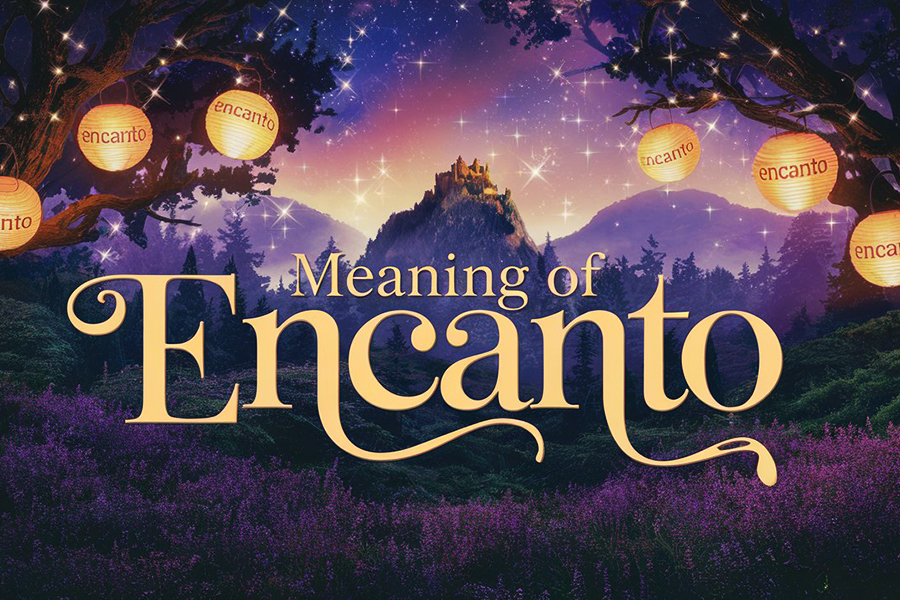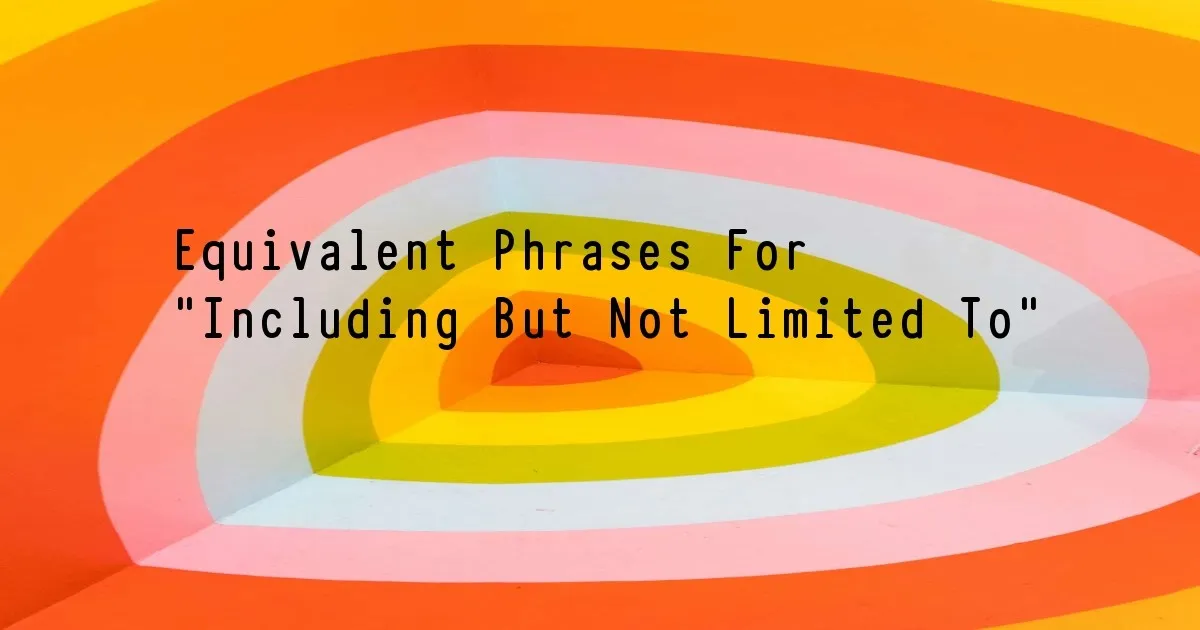The Meaning of Encanto in Spanish and Origin
Have you heard the word “Encanto”? Probably yes. From Disney’s magical movie Encanto to everyday talks, the word encanto is everywhere. Encanto is a Spanish word that means “charm” or “enchantment”. But in Spanish, the word encanto doesn’t just mean charm. It carries a deeper connection, magic, and irresistible allure. Okay, so let’s begin the story, meaning, origin, and usage of the Encanto word.
You may be wondering about its full meaning and usage. In this post, we’ll explore how the word encanto evolved from Latin to become a powerful symbol of charm, magic, and allure in Spanish.
What Does Encanto Mean?
The term ‘Encanto’ is Spanish in origin and is, in its purest sense. It is interpreted as enchantment, charm, spell, or even magic. The word Encanto represents an object or person who captivates or fascinates for diverse reasons, including beauty, mystery, or a special quality. Therefore, Encanto” is classified as a common noun in Spanish.
Common Translations of “Encanto” in English:
Charm: It is commonly used to refer to the qualities of someone who is appealing and attractive.
Enchantment: This means enchanting or tempting.
Magic: A supernatural force, also of a seductive type.
Spell: Similar to enchantment, often used in the same context as enchantment, although sometimes given a more specific, magical connotation.
Examples in Different Contexts:
Person: Ella tiene un encanto especial (She has a special charm).
Place: Este lugar tiene mucho encanto (This place is full of charm).
Object: El encanto de la joya es evidente (The charm of the jewel is evident).
However, depending on context, Encanto can also have the following connotations:
- charm
- enchanting
- glamour
- lovely
- beauty
- dear
- Love
The Origin of the Word “Encanto”
“Encanto” originates from the Latin verb incantare – to chant, to cast a spell. The second Latin root links “Encanto” to an idea that relates to “enchanted” or affected by “magia’’ or magic. However, as time passed, the meaning of the word evolved, and any trace of beauty, attraction, or the opposite sex became regarded as the lure. Change in the usage of the world also brings out the perception of someone or something that one cannot help but fall for or who or that which has a charm.
Notably, enchantment and magic are quite familiar in many culture and language domains. Considering the origin of Spanish, where the Latin language is believed to have originated from, the emphasis has remained on a mystical or enchanting touch.
The basic meaning of “Encanto” concerns charm and magic, but the term can be used for different purposes.
Synonyms for Encanto:
| English | Spanish |
| Charm | Carisma |
| Allure | Atractivo |
| Glamour | Glamur |
| Magic | Magia |
Different Connotations of “Encanto”
In Spanish, the most basic relation of ‘encanto’ is to charm and magic, but its connotations vary according to the situation. Let’s explore some of the varying connotations:
Physical Beauty or Attractive Qualities
Encanto is especially used to describe something that is both physically and visually attractive in appearance. It is used to say how attractive the person or thing involved is.
This usually refers to the sight view being beautiful, whether it is related to an object, person, or a place that grabs attention due to its beauty.
For example:
- Su rostro tiene un encanto único (Her face has a special charm).
- Este pueblo tiene mucho encanto (This town has a lot of charm).
Magical or Mystical Quality
Earlier, it was mentioned that the word “Encanto” is also linked closely to the notion of magic. This can mean something very close to being magical or, literally, unnatural, for example, a magical landscape, a magical and attractive person, or a magical occurrence beautifying the landscape. Similar to the Disney movie Encanto, where the family, the Madrigals, live hidden in the mountains of Colombia in a magical house called an “Encanto.”
For example:
- El bosque parecía lleno de encanto (Even forest seemed charming in every hue).
- La fiesta tenía un aire de encanto antiguo (The party had an air of old-world charm).
Cultural and Symbolic Significance
There are cases when “Encanto” can be translated to some object or place, which is significant from the cultural or, perhaps, even symbolic point of view. For example, in Spanish-speaking countries, a place might be considered ‘encanto’ if it holds history, culture, or a kind of life that is appealing to the eye and heart of the local people and tourists.
Example:
La ciudad de Granada tiene un encanto histórico (The city of Granada has historical charm).
What Part of Speech Does “Encanto” Belong to in Spanish?
“Encanto” is a noun in Spanish. It can act as a singular, masculine noun (el Encanto). It is used as a subject or object in a sentence.
Examples:
Singular: El encanto de la ciudad es irresistible (The charm of the city is irresistible).
Plural: Los encantos de la naturaleza (The charms of nature).
From a grammatical point of view, “Encanto” mostly receives little alteration when used in various contexts. Usually, it appears before articles such as el or un (the/a) as the object of charm or enchantment.
What Is the Infinitive of the Word Encanto?
The word “Encanto” is derived from the verb ‘encounter,’ which means ‘to enchant’ or ‘to delight.’ The infinitive form refers to a state of desire or longing.
The verb encantar indicates a preference for something or affection for something, just as in English, one might use the phrases “I really love” or “That enchants me.”
Example Sentences Using “Encantar”:
- Me encanta la música clásica (I love classical music).
- Nos encanta viajar por el mundo (We love traveling around the world).
The Difference between “Encantar” and “Gustar”
Encantar works the same as the word gustar, which means “to like,” but it is used in different ways from encantar. And finally, instead of saying Yo bebo café (I drink coffee), you would say Me gusta el café (Coffee is pleasing to me).
Instead of saying Yo gusto la pizza (I like pizza), you would say Me gusta la pizza (Pizza is pleasing to me).
- Esta película me gusta (This movie satisfies me/This movie bores me).
Therefore, when conjugating the verb encantar, those who speak Spanish change the form of the conjugation by regarding the subject that is being enchanted or liked.
What Other Verb Conjugations of “Encantar” Do Spanish Speakers Use?
The verb encantar is a regular -ar verb in Spanish, and its conjugations are straightforward. Here are the most common verb forms of encantar:
Present Tense:
- Yo encanto (I enchant)
- Tú encantas (You enchant – informal)
- Él/ella/usted encanta (He/she/you enchant – formal)
- Nosotros/nosotras encantamos (We enchant)
- Vosotros/vosotras encantáis (You all enchant – informal, used primarily in Spain)
- Ellos/ellas/ustedes encantan (They/you all enchant)
Preterite Tense (Past):
- Yo encanté (I enchanted)
- Tú encantaste (You enchanted)
- Él/ella/usted encantó (He/she/you enchanted)
- Nosotros/nosotras encantamos (We enchanted)
- Vosotros/vosotras encantasteis (You all enchanted)
- Ellos/ellas/ustedes encantaron (They/you all enchanted)
Imperfect Tense:
- Yo encantaba (I was enchanting)
- Tú encantabas (You were enchanting)
- Él/ella/usted encantaba (He/she/you were enchanting)
- Nosotros/nosotras encantábamos (We were enchanting)
- Vosotros/vosotras encantabais (You all were enchanting)
- Ellos/ellas/ustedes encantaban (They/you all were enchanting)
Conditional Tense:
- Yo encantaría (I would enchant)
- Tú encantarías (You would enchant)
- Él/ella/usted encantaría (He/she/you would enchant)
- Nosotros/nosotras encantaríamos (We would enchant)
- Vosotros/vosotras encantaríais (You all would enchant)
- Ellos/ellas/ustedes encantarían (They/you all would enchant)
Subjunctive Mood:
- Que yo encante (That I enchant)
- Que tú encantes (That you enchant)
- Que él/ella/usted encante (That he/she/you enchant)
- Que nosotros/nosotras encante (That we enchant)
- Que vosotros/vosotras encantéis (That you all enchant)
- Que ellos/ellas/ustedes encanten (That they/you all enchant)
Conclusion
The term Encanto in Spanish means charm and beauty as well as enchantment and magic. This adds much more depth to the translation used in everyday discourses and suggests that it signifies attraction, fascination, and wonder. When used to compliment another person’s appearance, a place, or the design of an object, “Encanto” brings along with it the feeling of the enchantment of beauty and mystery. Knowledge about its grammatical structures and the verb encantar means we are able to expand on it to express even more in Spanish.
As promised in this blog, we have explored all the nuances of meaning, history, and use of “Encanto” so that you can make the most of it. So now, whether you’re studying Spanish or just wondering about the underlying significance of ‘encanto’ and encantar, you know the answers.
Stay tuned for more such interesting blogs!
If interested, also read: How To Make Weekend Greetings More Fun?

Recent Post
What is The Meaning of a Medusa Tattoo?
January 9, 2025
The Meaning of Encanto in Spanish and Origin
January 4, 2025
Equivalent Phrases For “Including But Not Limited To”
December 30, 2024
How To Make Weekend Greetings More Fun?
December 30, 2024
10 Modern Sayings Similar To “Be There Or Be Square”
December 30, 2024






